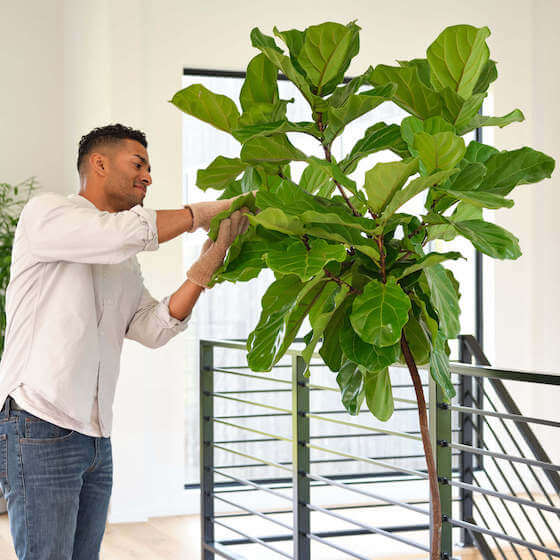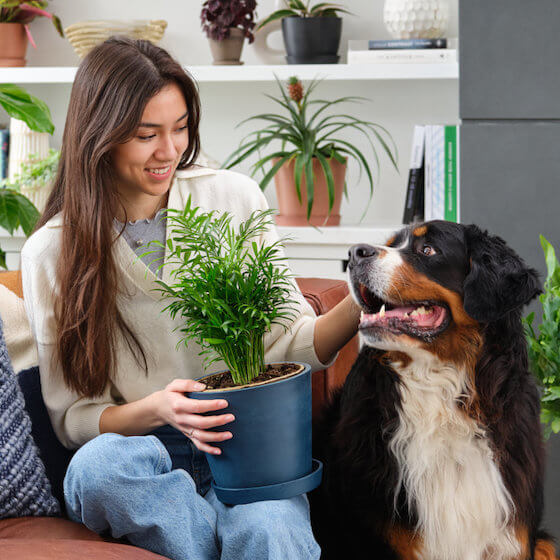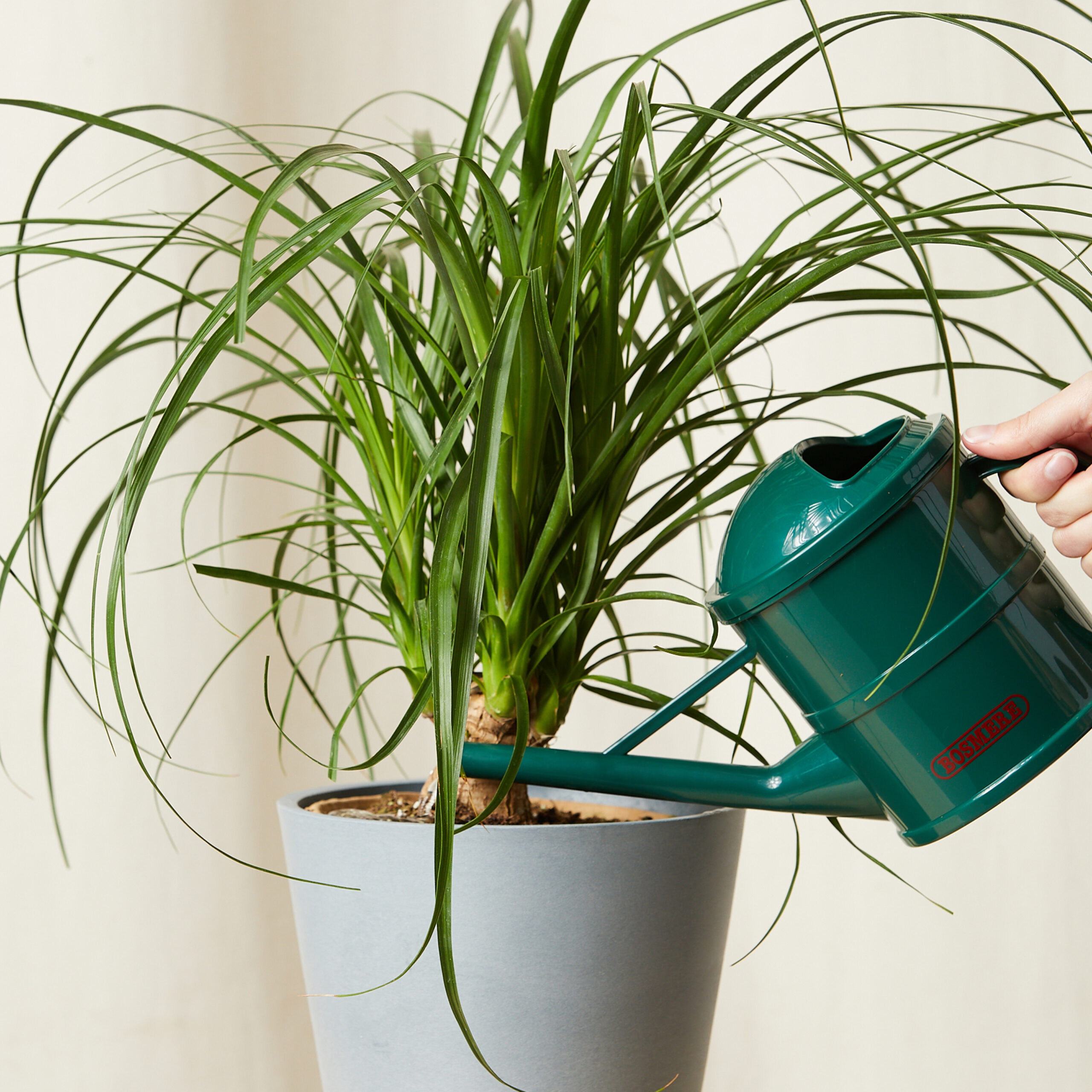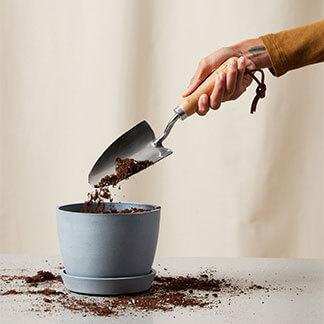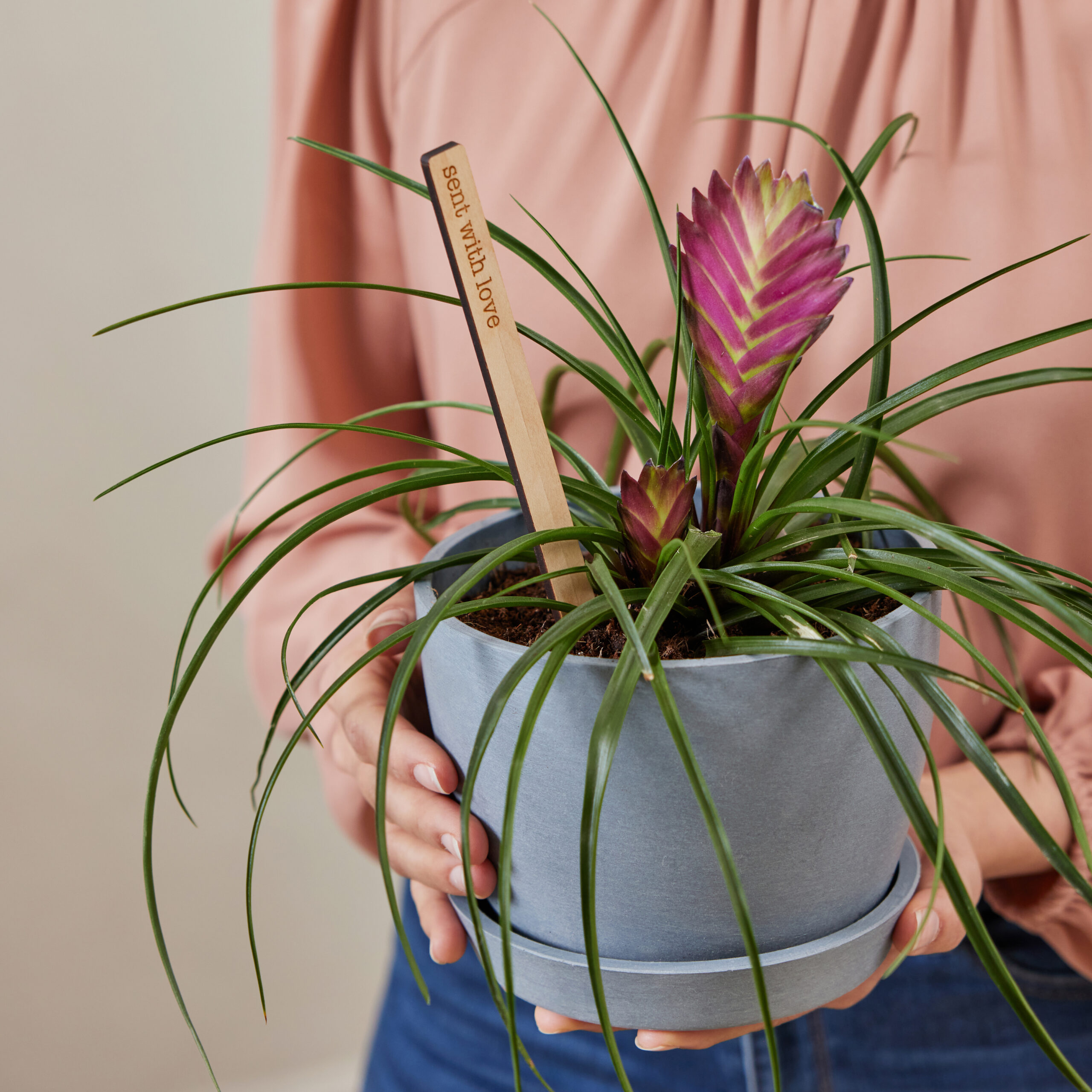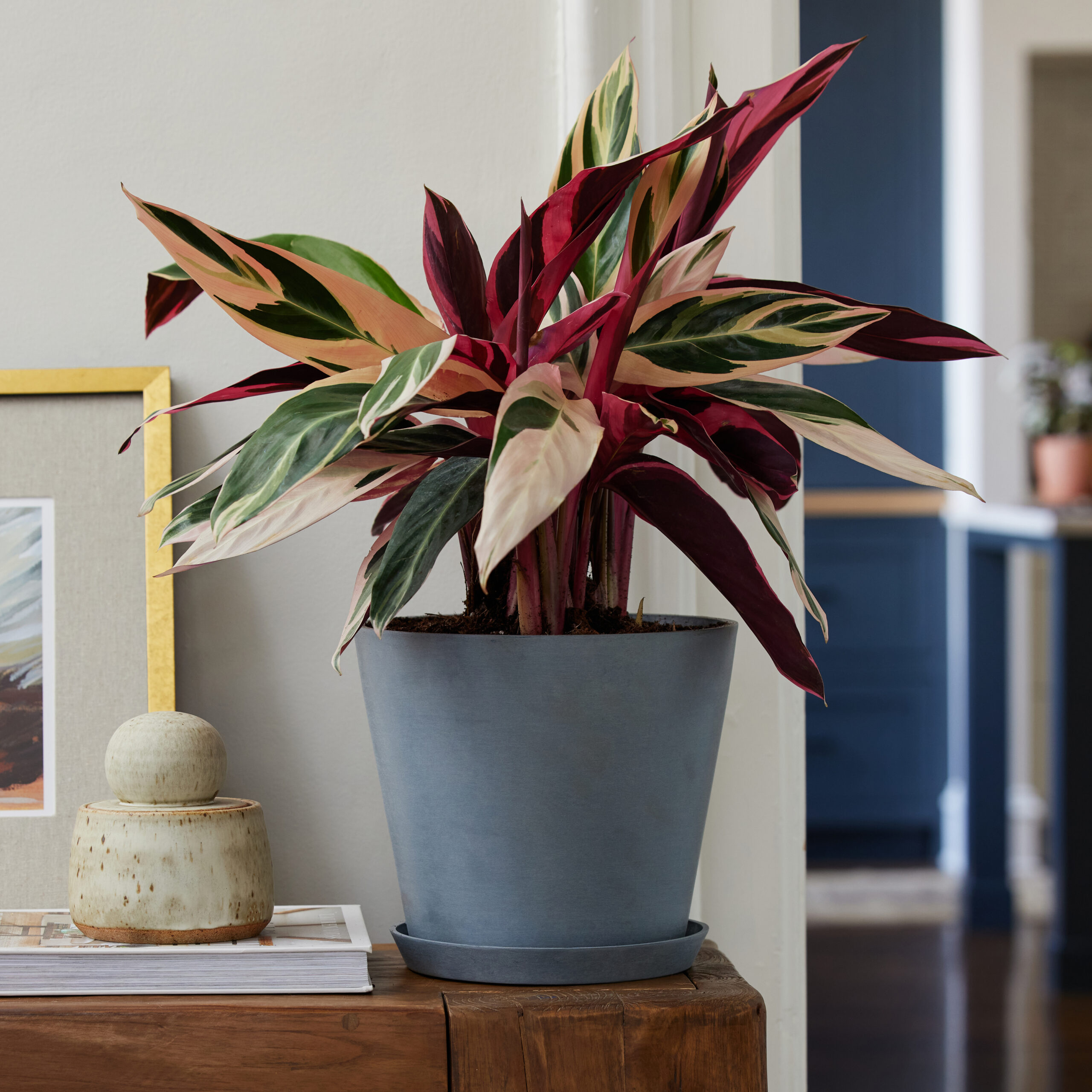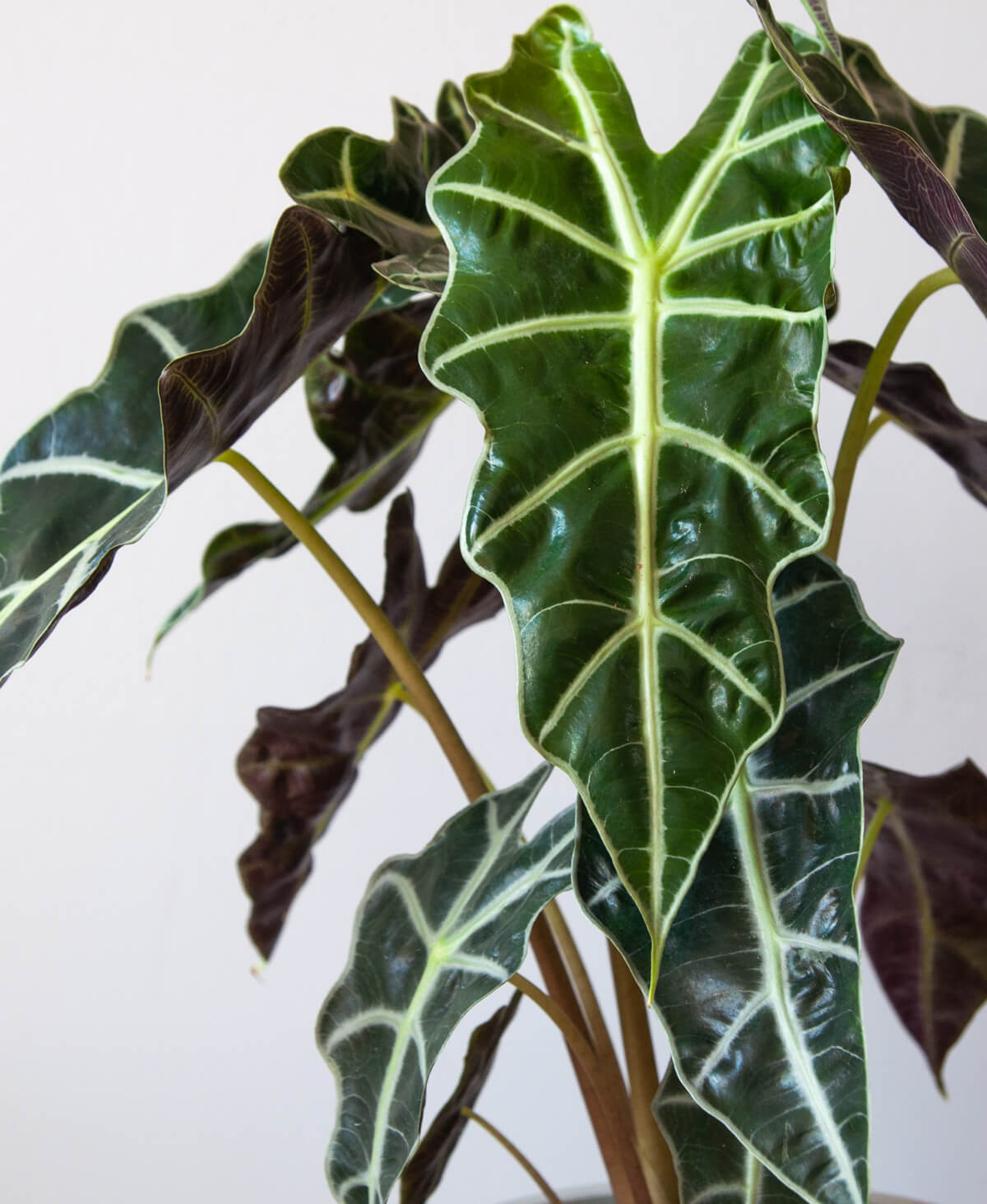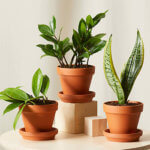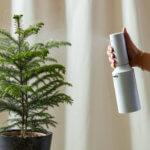Moisture
The most common cause of yellowing leaves among Alocasia plants is improper soil moisture–in particular, overwatering. Your Alocasia likes to be kept damp (but not wet or saturated!), so keeping a regular watering schedule is key. You’ll want to water your Alocasia when 25-50% of the soil volume is dry.
Make sure you provide enough water so that liquid flows from the drainage hole at the bottom of the pot and into the saucer. It’s extremely important to discard any excess water in the saucer and not to let your plant sit in any standing water. Your plant doesn’t like “wet feet,” which will cause the roots to rot and lead to the eventual death of the plant. Yellow and browning leaves are the first sign that root rot may be occurring.
Providing proper and consistent soil moisture is important in caring for your Alocasia plant. Alternating between bone dry and wet soil from ill-timed waterings can create stress and cause your plant to yellow. This is not a drought-tolerant plant.
Your humidity level
Low humidity and dry soil cause leaves to droop and brown on their edges, later followed by entire yellowing, browning, and shriveling. Your Alocasia will appreciate a boost in humidity from regular misting, a humidifier, or pebble tray.
Improper Light
Alocasia plants grow best when placed in bright indirect sunlight, but they will tolerate medium light. When exposed to direct sunlight for too long, the foliage will burn. While Alocasia Plants can adapt to medium light areas, their growth may slow. If placed in very low light, yellow leaves may develop. If you aren’t sure you have the right light for your plant, try using a Grow Light.
Pests
A weakened or stressed Alocasia is more susceptible to insect infestations. Sap-sucking bugs like spider mites can drain your plant of moisture. This problem quickly manifests itself by yellowing leaflets and fronds. Scale, mealybugs, and spider mites occur frequently in indoor conditions. If not killed early on, these small pests proliferate and move all along frond parts into nooks and crannies. The piercing mouths of the insects exhaust your plant and accelerate yellowing, especially if your Alocasia is already unhealthy from poor lighting, a nutrient deficiency, or improper soil moisture.
Some yellowing is natural
Is your Alocasia producing new growth? If there is new growth on your plant and the yellowing leaves are older, particularly at the bottom of the plant, this yellowing is natural. Your plant sheds its old leaves and sends energy to new growth.
